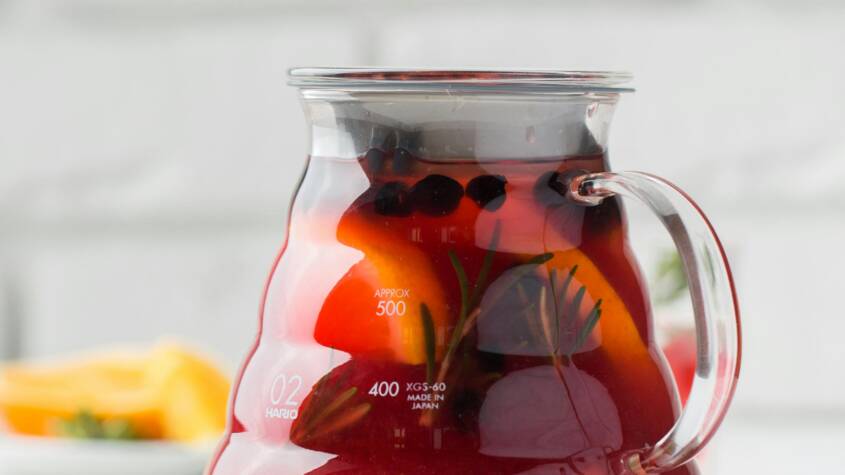
Many runners know the physical toll that training and racing can take on the body. Proper recovery is essential for maintaining performance levels and preventing injuries. A well-formulated recovery drink can significantly enhance muscle repair, replenish glycogen stores, and reduce soreness.
The right recovery drink for runners provides essential nutrients that aid in quick recovery after a run. These drinks typically combine carbohydrates and proteins, which work together to optimize recovery processes. By choosing an effective recovery drink, runners can support their bodies more efficiently, allowing for improved performance in subsequent workouts.
Making informed choices about recovery nutrition is crucial for any dedicated runner. Selecting a recovery drink that meets individual needs can make a marked difference in overall performance and well-being. Understanding what to look for in these beverages can help runners maximize their training efforts.
Essential Components of Recovery Drinks
Recovery drinks play a vital role in helping runners restore their bodies after strenuous activity. Key components include hydration, carbohydrates, proteins, and electrolytes, each contributing to recovery in unique ways.
Hydration: Replenishing Fluids
After running, it is crucial to restore lost fluids. Dehydration can impede recovery and negatively affect performance.
Fluid Recommendations:
- Water: The simplest form, effective for short runs.
- Sports Drinks: Provide fluids along with carbohydrates and electrolytes.
A good recovery drink typically contains a balance of water and electrolytes to help restore hydration levels effectively. The goal should be to replace fluids lost through sweat to maintain proper physiological function.
Carbohydrates: Restoring Glycogen Stores
Carbohydrates are essential for restoring glycogen stores, which are depleted during running. They serve as the primary energy source for endurance athletes.
Types of Carbohydrates:
- Simple Carbs: Quick hits of energy, such as glucose or fructose.
- Complex Carbs: Longer-lasting energy sources, like maltodextrin.
A blend of both types is often effective for recovery. Ideally, a recovery drink should contain approximately 1-1.5 grams of carbohydrates per kilogram of body weight.
Proteins: Repairing Muscle Damage
Protein is critical for repairing muscle tissue that sustains damage during intense running. It aids in recovery and promotes muscle synthesis.
Optimal Protein Sources:
- Whey Protein: Quickly absorbed, great for immediate recovery.
- Casein Protein: Provides a slow release of amino acids.
Including 10-20 grams of protein in a recovery drink can significantly enhance recovery outcomes. This combination fuels muscle repair and growth, preparing the body for the next run.
Electrolytes: Maintaining Cellular Balance
Electrolytes such as sodium, potassium, magnesium, and calcium are vital for maintaining fluid balance and nerve function. They are lost through sweat during exercise.
Key Functions:
- Sodium: Essential for fluid retention and blood pressure regulation.
- Potassium: Helps muscle contraction and nerve signaling.
Recovery drinks should contain adequate amounts of these electrolytes. Aiming for a drink with 100-700 mg of sodium and a balanced quantity of potassium helps restore the body’s electrolyte levels effectively.
Optimal Timing and Frequency
Understanding when and how often to consume recovery drinks can significantly impact a runner’s performance and recovery speed. Effective timing and regular intake can enhance nutrient absorption and aid muscle repair.
Post-Workout Window: Maximizing Absorption
The post-workout period is critical for recovery. Consuming a recovery drink within 30 minutes after a run allows for optimal nutrient absorption. During this timeframe, muscles are particularly receptive to carbohydrates and protein.
Recommended Nutrient Ratio:
- Carbohydrates: Aim for 3:1 ratio of carbs to protein to replenish glycogen stores.
- Protein: Include 10-20 grams to aid muscle repair.
Choosing drinks designed for quick absorption, such as those featuring electrolytes, can enhance rehydration. A balanced recovery drink can significantly improve muscle recovery, reduce soreness, and prepare the body for subsequent workouts.
Daily Recovery: Beyond the Immediate Window
Recovery does not end after the first 30 minutes. Incorporating recovery drinks into a daily routine supports ongoing muscle repair and energy replenishment. Hydration is essential throughout the day, especially on high-intensity training days.
Frequency Recommendations:
- Post-Run: Immediately after each run.
- Midday: A light recovery drink can help maintain energy levels during workouts or races.
- Evening: Consuming another serving post-dinner can support overnight recovery.
By establishing a consistent routine, runners can ensure they are optimizing recovery processes, ultimately enhancing performance and reducing the risk of injury.
How Experts in SEO Service in India Utilize Data Analytics for Predictive SEO Strategies
Though it sounds like a large and complex term, data analytics is basically only a means o…










